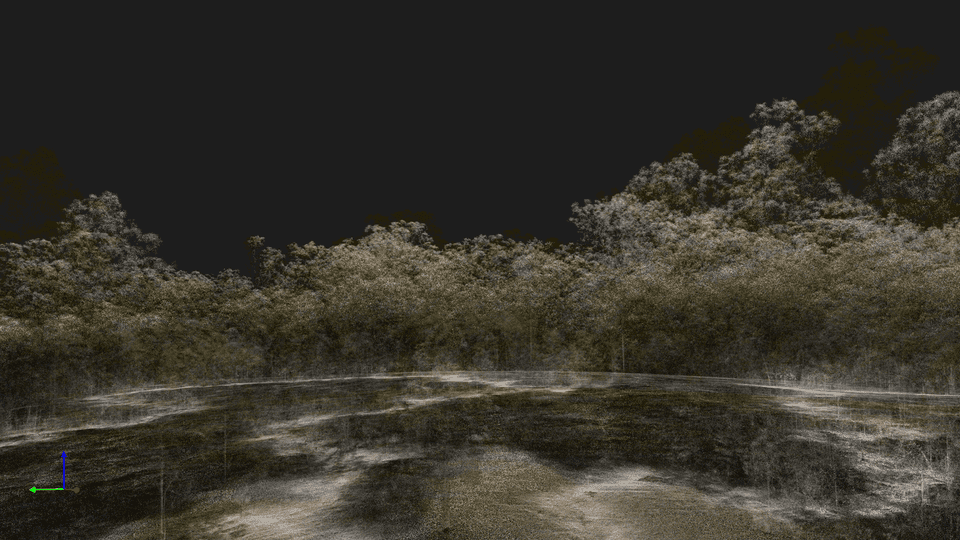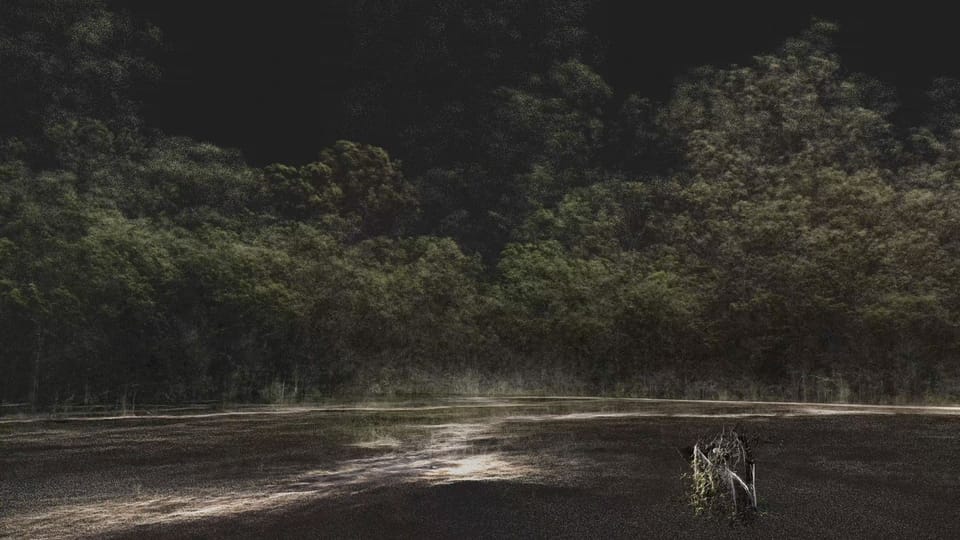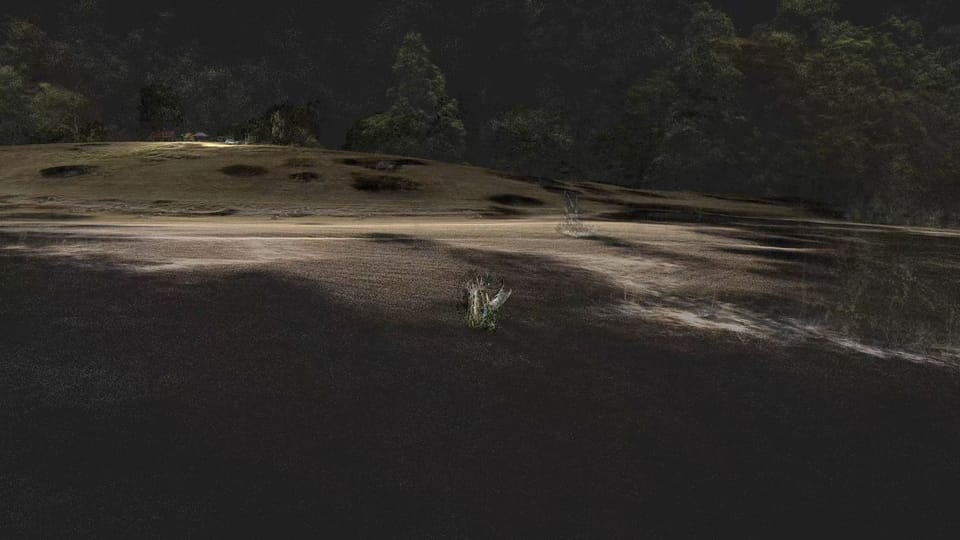Analog Intelligence
WHAT:
An early outcome of the forthcoming Forest/Art Intelligence Project (FAI) (2024-6) which aims to return a currently cleared block of land back to high conservation-value forest at Samford Ecological Research Station (SERF), near Brisbane, Australia. As the forest ecology slowly returns to health, a symbiotic, experimental artwork is being developed across the entire site. When realised it will have both local and on-line presence and include a full scientific analysis of the site’s ongoing revegetation status.
This video installation speaks to the projects’ first tentative steps – into uncovering and bringing to attention the extraordinary natural intelligences of a land in self-repair after decades of clearing, providing the inspiration for a non-extractive, hybrid art-science work capable of growing and evolving with the forest, whilst also actively benefitting it.
Analog Intelligence explores the future artwork site by land, air and soil, speaking poetically to early findings into conceiving loosely coordinating site-wide artworks, able to bring the forests’ regeneration process to public focus, whilst finding and occupying their own intelligent, beneficial ‘niches’ within that re-emerging forest ecology.
This first outcome of the R&D phase was developed during the initial six months of the long-term FAI project, supported by a prestigious ANAT Synapse Art-Science residency (2024) and a creative development grant from Creative Australia (2024-5). The project is supported by the Australian Network for Art and Technology (ANAT), Samford Ecological Research Facility (SERF) and the NCRIS-enabled Terrestrial Ecosystem Research Network (TERN) and Dr. Dmitry Bratanov and Gavin Broadbent, Research Engineering Facility, Office of Research Infrastructure, QUT, Brisbane, Australia.
WHERE:
1: ISEA 2024, Everywhen: (29th International Symposium of Electronic Art),QUT, Brisbane, Australia, 21-29th June.
PARTNERS:
ISEA 2024, The Australian Government through Creative Australia, its arts funding and advisory body, the Australian Network for Art and Technology (ANAT) supported by a ANAT Synapse Art-Science residency (2024), SERF (Samford Environmental Research Facility), Lorrelle Allen + Site Technician Marcus Yates, QUT More Than Human Futures Group and Centre for the Environment and Society. Collaborating Science Team: Dr David Tucker, Dr Gabrielle Lebbink, Dr Eleanor Velasquez and Marcus Yates. Further supported by A/Prof Caroline Hauxwell. Visual data set collected and processed to registered point cloud by Dr. Dmitry Bratanov and Gavin Broadbent, Research Engineering Facility, Office of Research Infrastructure, QUT, Brisbane, Australia.
Audio sources: Australian Acoustic Observatory: A Network to Monitor Biodiversity Project Team, with funding from the Australian Government through the Australian Research Council (LE170100033) (2018). Brisbane, QLD: QUT [www.acousticobservatory.org]. Data is licensed under the CC BY 4 Licence.


